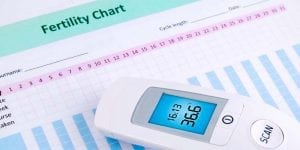Women who might be interested in having a baby one day should have an in-depth understanding of their fertility. This knowledge is beneficial when coming up with family-planning strategies. The best way a woman can acquire clear knowledge about her fertility is by monitoring her ovulation. Some of the methods used to monitor ovulation include monitoring basal body temperature and examining and recording the regularity of the mucus in the cervix. The benefits of tracking ovulation are women’s clear knowledge of their bodies and the process of getting pregnant being faster. Some symptoms that indicate the ovulation process has begun include the following:
- Increased sex drive
- Bloating
- Breast tenderness
- Light spotting
- Raised basal body temperature
- Increased cervical fluid that is similar to egg whites
Ovulation Defects Overview
Ovulation defects refer to irregular ovulation or ovulation that does not occur at all in women who have not yet reached menopause. Ovulation defects can be caused by several factors:
- Large quantities of prolactin: This occurs when the pituitary gland secretes more prolactin than is required. Prolactin inhibits the production of estrogen, leading to infertility.
- Premature ovarian failure: It occurs when an autoimmune response develops or when a woman loses her eggs prematurely. A woman can lose eggs prematurely as a result of genetics or treatment for some diseases, such as chemotherapy.
- Hypothalamic dysfunction: The hypothalamus is responsible for secreting luteinizing hormone and follicle-stimulating hormone, which in turn stimulate ovulation. The reduction in the production of these hormones can be caused by excess emotional or physical stress.
- Polycystic ovary syndrome: The syndrome causes hormone imbalance, and its common characteristics are obesity, acne and abnormal hair growth on the body.
The diagnosis of ovulation defects can be done through different methods such as reviewing the patient’s menstrual and medical history or drawing a blood sample for a lab test.
When to See a Doctor

Tips for Overcoming Ovulation Defects
In addition to physical exercise, following a proper diet is a strategy that women often disregard. Overweight and underweight women are often affected by hormonal imbalances. Eating a diet rich in proteins and vitamins also plays a big role in enhancing women’s fertility. Upholding a regular intake of a balanced diet rich in nutrients helps the body know that it is healthy enough to maintain a pregnancy.
Life is usually filled with stress, and therefore, a woman who would like to improve her ovulation process should go the extra mile to overcome and avoid unnecessary stress. The chemicals and hormones released by stress usually inhibit the reproductive hormones. Therefore, when a woman is stressed, her body usually focuses on what is stressing her, and minimal focus is kept on her fertility. When the stress is reduced, the focus shifts, helping a woman in overcoming ovulation defects.
Exercise plays a crucial role in regulating hormones and the weight of a woman, both of which affect regular menstruation and ovulation. Exercise also helps a woman strengthen her body, thus enabling her to maintain a child’s growth during pregnancy and ease into childbirth.
Some vitamins are beneficial to the ovulation process, such as vitamin C. Vitamin C raises the level of water in the cervical mucus, thus encouraging conception. Citrus fruits and green leafy vegetables are rich in vitamin C. The vitamin can also be consumed in its pill form that is ascorbic acid.
In order to overcome ovulation defects, a woman should reduce alcohol consumption or abstain from it. A woman can reduce her fertility by consuming over 250 milligrams of caffeine in a day. Consuming alcohol has similar effects, and it is recommended for women to take less than two drinks in a day if she wants to become pregnant.
To overcome ovulation defects, a woman may be required to regulate her weight and ensure it is normal. Women who are underweight or overweight may experience problems with their ovulation. Research reveals that women with a BMI below nineteen and above twenty-five take four and two times longer, respectively, compared to a healthy woman to conceive.




